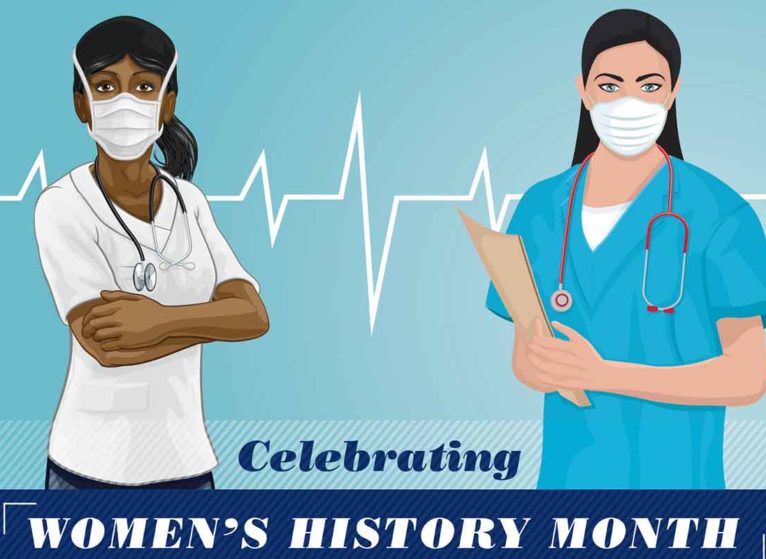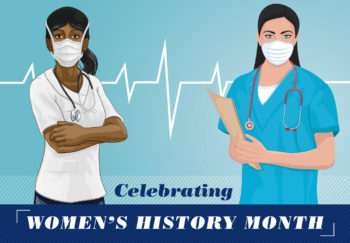During her medical training to become a structural and interventional cardiologist, Nishtha Sodhi, MD, was one of the few women in the U.S. entering the field. Today, she is medical director of the UVA Advanced Cardiac Valve Center. She holds several leadership positions on national committees, including the Awards Committee and the Accreditation Foundation Committee of the American College of Cardiology.
About this series: The path to becoming a surgeon is never easy. But for women, who have historically been underrepresented in the field, the barriers to becoming a surgeon are even higher. This March, UVA Health joins the national commemoration of Women’s History Month by celebrating just a few of our history-making female surgeons.
As a board-certified structural and interventional cardiologist, she specializes in diagnosing heart-related conditions. She also has the extensive training and expertise required to fix these problems using some of the most advanced technology available.
Sodhi is passionate about improving the diagnosis and treatment of valvular heart disease, as well as raising awareness about heart disease in women. “Heart disease in women is underdiagnosed. It often presents itself differently in women than in men, and women have unique circumstances. For instance, during pregnancy, women may be at higher risk of developing certain conditions,” she says. “I’m very attuned to these issues when treating patients. I’m also in a position to raise awareness among my colleagues and the community about the importance of taking these differences into account.”
With Hustle & Grit, The Sky's the Limit
Healthy Balance sat down with Sodhi to learn more about her journey to becoming a structural and interventional cardiologist. Here’s what she had to say.
Q: WHAT INSPIRED YOU TO GO INTO MEDICINE AS A PROFESSION? AND WHY SURGERY IN PARTICULAR?
It is an absolute privilege to be able to change someone’s life for the better. I’m grateful for this opportunity and the trust that patients and their families place in me. In my subspecialty, I perform procedures that almost immediately improve patients’ symptoms and quality of life. This is extremely gratifying.
Q: WHAT QUALITIES DOES IT TAKE TO BE A SUCCESSFUL STRUCTURAL & INTERVENTIONAL CARDIOLOGIST?
Preparation, ability to adapt on the spot, excellent communication skills and team member skills, and compassion.
Q: DO YOU HAVE ANY ROLE MODELS? IF SO, HOW DID THEY IMPACT YOUR DECISION TO BECOME A SURGEON?
My parents — they taught me the importance of hustle, grit, and seizing opportunities without letting the fear of failure get in the way. They always encourage me to reach for the stars. The sky is the limit! This outlook and approach to life allowed me to pursue my goals as a female structural and interventional cardiologist despite it being a male-dominated specialty.
Q: DO YOU THINK OF YOURSELF AS A ROLE MODEL FOR OTHER WOMEN WHO WANT TO BECOME A STRUCTURAL & INTERVENTIONAL CARDIOLOGIST?
I had outstanding mentors and training, and hope that I can help inspire the next generation of trainees to enter this exciting subspecialty. When we see someone who looks like us in a role, it allows us to visualize and believe that we, too, can perform that role.
Q: WHAT ASPECTS OF PRACTICING MEDICINE DO YOU LIKE THE MOST?
I was in my first year of medical school when the early clinical trials on transcatheter aortic valve replacement (TAVR) started in the U.S. Seeing the medical team replace a patient’s aortic valve without opening the chest was incredible. For the first time, we had an option for patients with severe aortic valve disease who were too sick to survive open-heart surgery. The technology, the faster recovery time, and the immediate improvement in patients’ symptoms made a huge impression on me. At this very early stage in my medical career, I decided this is what I wanted to specialize in.
Fewer than 2% of structural and interventional cardiologists in the U.S. are women. I am grateful for my outstanding mentors who supported my career development. I hope to provide that same mentorship for the next generation of students and trainees.
Transcatheter therapies have completely transformed and revolutionized the management of valvular and coronary disease. This field is full of constant innovation and creative solutions to champion for patients, which is something I love. I feel privileged to be part of this exciting and dynamic subspecialty.
Q: WHAT WAS SOMETHING THAT SURPRISED YOU OR THAT YOU DIDN'T EXPECT ABOUT PRACTICING MEDICINE?
Medical school is often individual-focused, but the practice of medicine is a team-based sport. This allows us to better care for patients. For example, our Advanced Cardiac Valve Center is made up of a team of cardiologists, cardiac surgeons, nurse practitioners, nurses, clinical researchers, and coordinators. We all work together to design a comprehensive treatment plan to meet the unique needs of each patient and their families.
We don’t just treat a medical condition in isolation. By working together, we can take care of the patient and all of their needs in a comprehensive way. Many of our patients are elderly or traveling long distances, so we also try to streamline the evaluation process. We coordinate everything as best as possible for patients and their families. Not only is it fun to interact with multiple specialties, working in teams allows us to champion the best care and outcomes for patients.
Q: HAVE YOU FELT THAT GENDER WAS A BARRIER TO YOUR SUCCESS OR TO BECOMING AN INTERVENTIONAL CARDIOLOGIST? WAS IT DIFFICULT TO SUCCEED IN A MALE-DOMINATED FIELD?
Fewer than 2% of structural and interventional cardiologists in the U.S. are women. Nineteen out of 50 states have zero female TAVR operators. Strong mentorship and support are fundamental, and I am grateful for my outstanding mentors who supported my career development. I hope to provide that same mentorship for the next generation of students and trainees.
Q: LOOKING BACK, WHAT WOULD YOU TELL YOUR YOUNGER SELF ABOUT THE JOURNEY TO BECOMING A DOCTOR?
While the road is long, enjoy the journey!
Q: WHAT KEEPS YOU SANE?
Working out every morning before work, dancing, hiking, and spending time with family and friends!



Dr. Sodhi is wonderful. It’s a pleasure to work with her. She is always gracious and makes a point to say hello. She is great with the patients and family members. She is a great Doctor to see the questions that she was asked, and they are correct. I’m impressed with her.